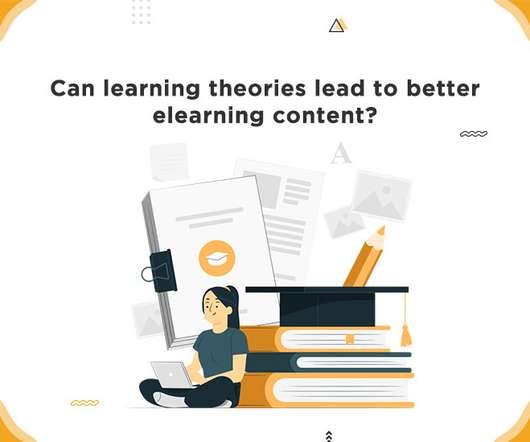Best Practices and Strategies to Implement Experiential Learning Design
Hurix Digital
FEBRUARY 20, 2024
Experiential learning, a robust learning theory, emerges as a compelling alternative to traditional models. Through active engagement and tailored experiences, experiential learning caters to diverse learning styles, paving the way for a more equitable and effective educational experience.




































Let's personalize your content